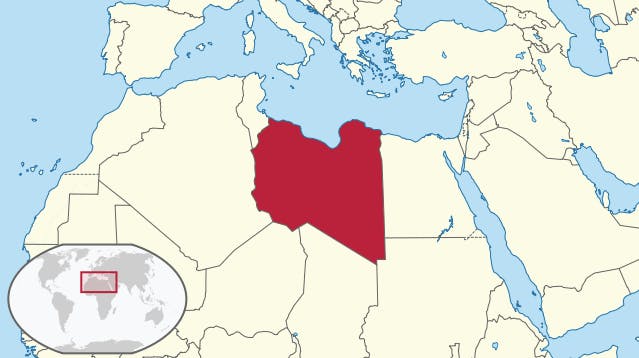A report earlier this month exposed an underground slave trade in Libya, and limited coverage of the issue has sparked public outrage.
After CNN broke ground on the issue, it was discovered by the International Organization of Migration (IOM) hundreds of North African refugees and migrants had been targeted on their voyage to Europe by these slave markets.
Dennis Laumann, an African history professor at the University of Memphis, said the reason behind this is the result of many factors like environmental changes caused by climate change devastating agriculture in parts of sub-Saharan Africa (which has caused people to seek work in Europe), and the lack of a central government and the absence of law and order in Libya since the overthrow of its leader Muammar Qaddafi by the United States and its allies in 2011.
“What is heartening, though, is the outcry across the world after the images of people being sold as slaves were reported by the media,†Laumann said.
Laumann said another cause would be the "basic greed" of people who profit from the desperation of others.
“While the reports of slave markets in Libya are particularly shocking, we should not forget that refugees and migrants across the world are facing similar kinds of violence at this very moment — Syrians fleeing war in their country, the Rohinyga escaping genocide by the government of Myanmar and Central Americans who come to our own country to labor in factories and fields for instance,†Laumann said.

Tens of thousands of people cross Libyan borders on this trip, according to CNN, and of those, more than 3,000 drown yearly while crossing the Mediterranean Sea. It is estimated anywhere between 400,000 and one million refugees are trapped in Libya where they are robbed, raped, murdered or forced into slavery, according to Fortune magazine.
Mohammed Abdiker, the IOM’s Director of Operation and Emergencies, returned from a trip from Tripoli and said in a press release the situation is dire and the conditions in Libya are horrifying.
President Donald Trump has not made any formal statements regarding the issues in Libya; however, he tweeted about CNN International spreading “fake news†the next day after the slave trade report was published.
“@FoxNews is MUCH more important in the United States than CNN, but outside of the U.S., CNN International is still a major source of (Fake) news, and they represent our Nation to the WORLD very poorly,†Trump tweeted. “The outside world does not see the truth from them!â€
Libyan state media took the tweet as an opportunity to discredit CNN’s report about the slave trade in the country, according to Fortune. A Libyan broadcaster said it was possible CNN published the report of slavery in Libya to secure a hidden political objective and added it was striking that the president’s comments came a day after the report.
Twitter also erupted with public concern regarding the issue.
“The slave trade that is going on in Libya has to STOP NOW. Speak up and speak out. We CANNOT be silent!†tweeted rap artist Sean “Diddy†Combs, now known as Brother Love.
Others targeted Trump’s dismissiveness of CNN's credibility.
“Human beings are being auctioned off & enslaved in Libya but bc [sic] Trump calls CNN ‘fake news’ the credibility of that video is questioned,†tweeted Clint Smith, a Harvard University doctoral candidate. “Next time a Republican says they don’t pay attention to Trump’s twitter I hope a reporter tells them they’re complicit in human trafficking.â€






